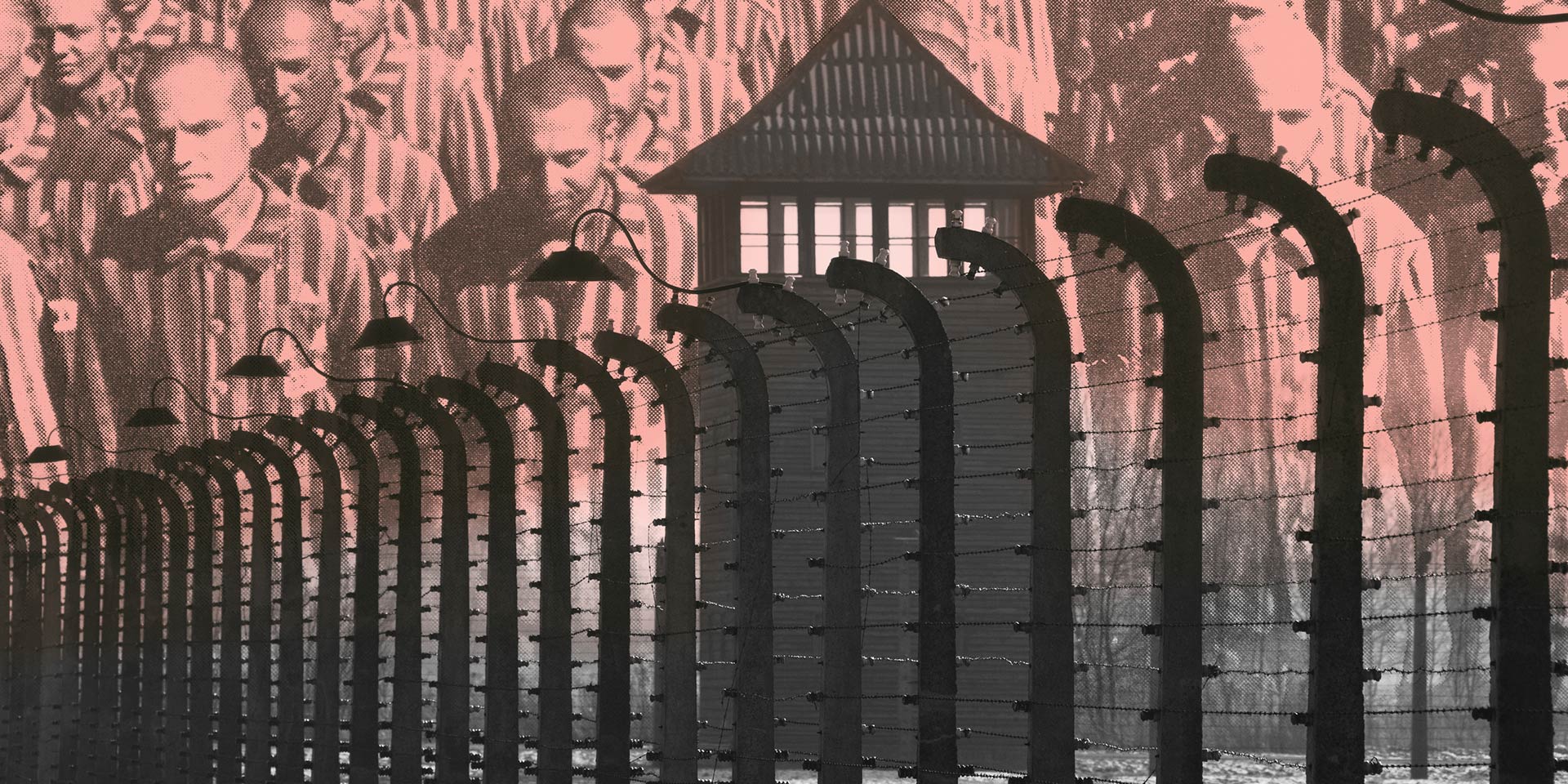Most of our beliefs are easy to keep, as long as nothing puts them to the test. Like many others, Henry Gerecke discovered to what extent he truly believed in what he had preached for years when faced with a difficult choice.
Henry was born in 1893 into a family of farmers in Missouri. His parents were good Lutheran Christians. However, his desire to become a pastor was not to his father’s liking. Still, his family supported him in going to the schools that would lead him to become a pastor in 1926. His inclination for missionary work and helping those in need brought him a few years later to lead the Lutheran mission in the city of St. Louis.
Henry’s tireless involvement had not gone unnoticed in hospitals, schools, orphanages and prisons. In order to reach as many people as possible, he did a show on the local radio, called “Moments of Comfort”. Hundreds of letters received in response to the broadcasts showed that the message of the gospel was strong, bringing hope and deliverance.
In 1943, Henry was approaching the age of 50, and his three sons fought in Europe in World War II. If he had waited a few more months, he would not have been accepted to the front because of his age, so he decided to sign up while he was still allowed. He served as chaplain for more than a year in the United States’ 98th General Hospital, stationed in the United Kingdom, and then moved to France and Germany toward the end of the war.
All this time he witnessed countless atrocities and suffering and heard hundreds of confessions of dying young men. He later learned that two of his boys had been seriously injured. The war weighed heavily on him, so when it ended, all he wanted to do was to go home.
When Colonel Burton Andrus called him for one last task, Henry did not imagine that it would be the most difficult of the entire war. He was told from the start that he could refuse and go home. The army needed a chaplain for the Nuremberg detainees, high-ranking Nazi officials, many of them close to Hitler. He was chosen because he was a Lutheran, like most of the detainees, because he knew German, and because he had a long experience with prisoners. He was given time to decide whether or not to accept the mission.
Henry was faced with a very difficult decision. He knew that Hitler’s men needed rescue too. Still, he couldn’t help but feel repulsed at the thought of being around them. He had just seen the consequences of these people’s decisions. He had visited the Dachau concentration camp when the blood of the killed Jews was still on the walls, had seen the instruments of torture and the gas chambers. What could he say to these people? Wasn’t it a betrayal and a blasphemy to present to them the message of divine forgiveness?
After fervent prayer, in which he asked for the power to hate sin and love the sinner, he decided to accept the task and postpone his return home. Sixtus O’Connor, a Catholic priest who would speak to Catholic detainees, would accompany him. The rules were clearly explained to them: they could offer spiritual counsel to those who called them, but they could not in any way influence the process and the final verdict.
The first he visited was Hitler’s deputy Rudolf Hess, who refused to attend the religious services. Next was Hermann Göring, the commander of the Luftwaffe and the second man after Hitler, who gladly accepted Henry’s invitation. Henry would later find out that Göring had accepted the meeting only to get out of his solitary confinement cell but that he had no regrets about the atrocities committed. In his opinion and his words, “Jesus was just another smart Jew.”
Next was Wilhelm Keitel, chief of the Oberkommando der Wehrmacht, the high command of Nazi Germany’s Armed Forces, whom Gerecke found reading the Bible. Keitel initially considered Henry’s invitation a joke. Then, there was Fritz Sauckel, called “the greatest and cruellest slaver since the pharaohs of Egypt.” He also agreed to attend.
One by one, for more or less spiritual reasons, the following people agreed to come to the religious services: Admiral Raeder, who had asked for a pastor for counsel, Admiral Doenitz, Joachim von Ribbentrop (Minister of Foreign Affairs), Konstantin Hermann Karl Freiherr von Neurath, Hjalmar Schacht (Minister of Economy), Walther Funk (President of the Central Bank), Baldur von Schirach (Leader of the Nazi Youth Movement), Wilhelm Frick (Minister of the Interior) and Albert Speer (Minister of Armaments and War Production and Hitler’s favorite architect).
Of the 15 detainees who had declared themselves Lutherans, 13 attended the first religious service. At the end of the first sermon, Sauckel called Henry to his cell, asked him to read the Bible and pray with him, and apologised in tears for all he had done, saying, “God be merciful to me, a sinner.”
Henry was convinced of his conversion and later noted, “I have had many years of experience as a prison chaplain and I do not believe I am easily deluded by phoney reformations at the eleventh hour.”
As Christmas approached, Henry could observe those who were sincere, and four of them received Holy Communion: “I am very slow about ministering the Lord’s Supper. I must feel convinced that each candidate not only understands its significance, but that, in penitence and faith, he is ready for the sacrament.” In the following months, four more joined Henry as communicants.
Henry’s presence had become necessary to them, so when his wife insisted on him returning home, the men—who up until just before had been the most powerful people in the world—wrote her a letter begging her to allow him to stay.
Even those who did not attend the religious service signed the letter, which is on display at the Concordia Historical Institute in St. Louis: “Please consider that we cannot miss your husband now… In this stage of the trial it is impossible for any other man than him to break through the walls that have been built up around us, in a spiritual sense even stronger than in a material one.” Impressed by the letter, his wife did not insist and encouraged Henry in his mission.
On October 1st, 1946, the final verdicts were announced, and most of the detainees were sentenced to death by hanging. Henry believed that for some of them, the end of the story was not on the scaffold where they were hanged. Ribbentrop even assured him they would see each other again.
Returning to the United States, Henry continued his mission within prisons. He received dozens of threatening letters over the years (discovered by his son after his death), written by American Jews who accused him of treason. Even Christians judged his decision to serve the greatest criminals of mankind. Like him before, they could not accept that forgiveness was offered to the thief on the cross, and now the Nazi criminals.



















